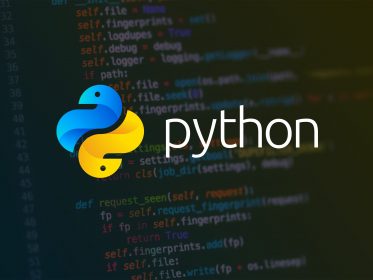Python – Web Developer Course

About Course
A “Python – Web Developer Course” is a training program or course that aims to teach individuals the skills and knowledge required to become a web developer using the Python programming language. Python is a versatile and popular language for web development due to its simplicity, readability, and extensive libraries and frameworks.
A comprehensive Python web developer course may cover a range of topics related to web development using Python, including:
1. HTML, CSS, and JavaScript: Understanding the foundational web technologies used for creating the structure, styling, and interactivity of web pages.
2. Introduction to Python: Learning the basics of Python programming, including data types, control structures, functions, and object-oriented programming.
3. Web Frameworks: Exploring popular Python web frameworks such as Django and Flask, which simplify the process of building web applications.
4. Model-View-Controller (MVC) Architecture: Understanding the MVC design pattern and how it is implemented in Python web frameworks.
5. Templating Engines: Learning how to use templating engines like Jinja2 to create dynamic and reusable HTML templates.
6. Database Integration: Connecting Python web applications to databases (e.g., SQLite, MySQL, PostgreSQL) using ORMs (Object-Relational Mappers) like Django ORM or SQLAlchemy.
7. Authentication and Authorization: Implementing user authentication and authorization features in Python web applications.
8. RESTful APIs: Building and consuming RESTful APIs to enable communication between the frontend and backend of web applications.
9. Frontend Frameworks: Exploring frontend libraries and frameworks like React, Angular, or Vue.js and integrating them with Python backend applications.
10. Deployment: Learning how to deploy Python web applications to various hosting platforms, including cloud services like Heroku or AWS.
11. Testing and Debugging: Understanding techniques for testing and debugging Python web applications to ensure their functionality and reliability.
12. Security: Learning about common web application security vulnerabilities and best practices for securing Python web applications.
13. Real-World Projects: Working on practical web development projects to apply the learned concepts and gain hands-on experience in Python web development.
It’s worth noting that Python web development covers both backend and frontend aspects of web applications. Therefore, a comprehensive Python web developer course might also include elements of frontend development, as well as integrating Python with JavaScript libraries and frameworks for enhanced interactivity.
Course Content
Introduction to Python and Web Development
-
Introduction to Python programming language
-
Setting up a Python development environment (Python interpreter, IDE, etc.)
-
Overview of web development technologies (HTML, CSS, JavaScript)

